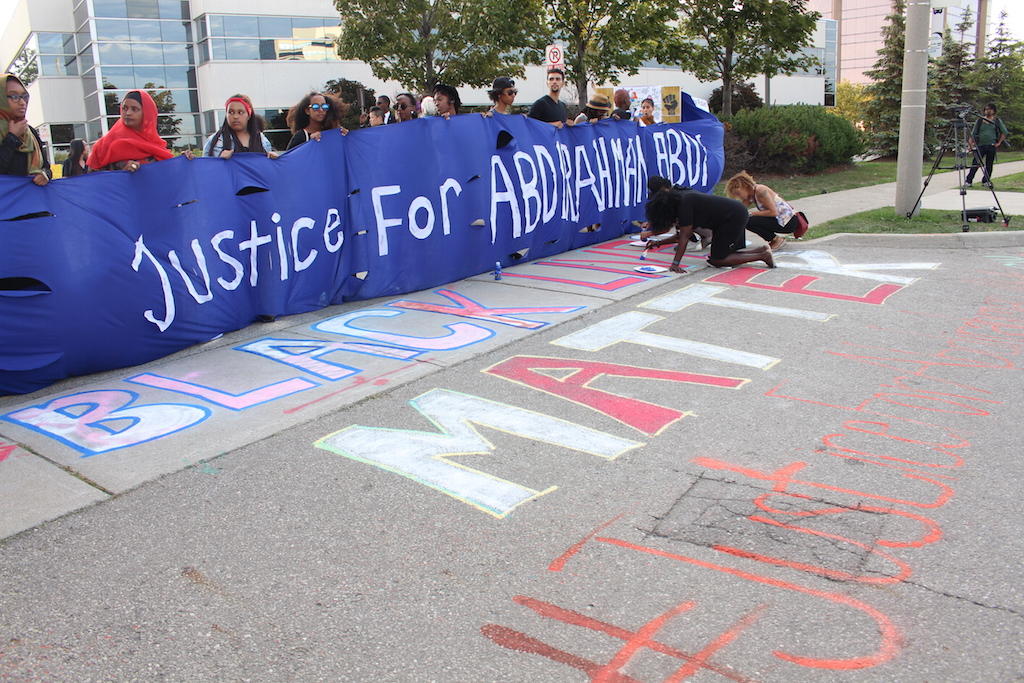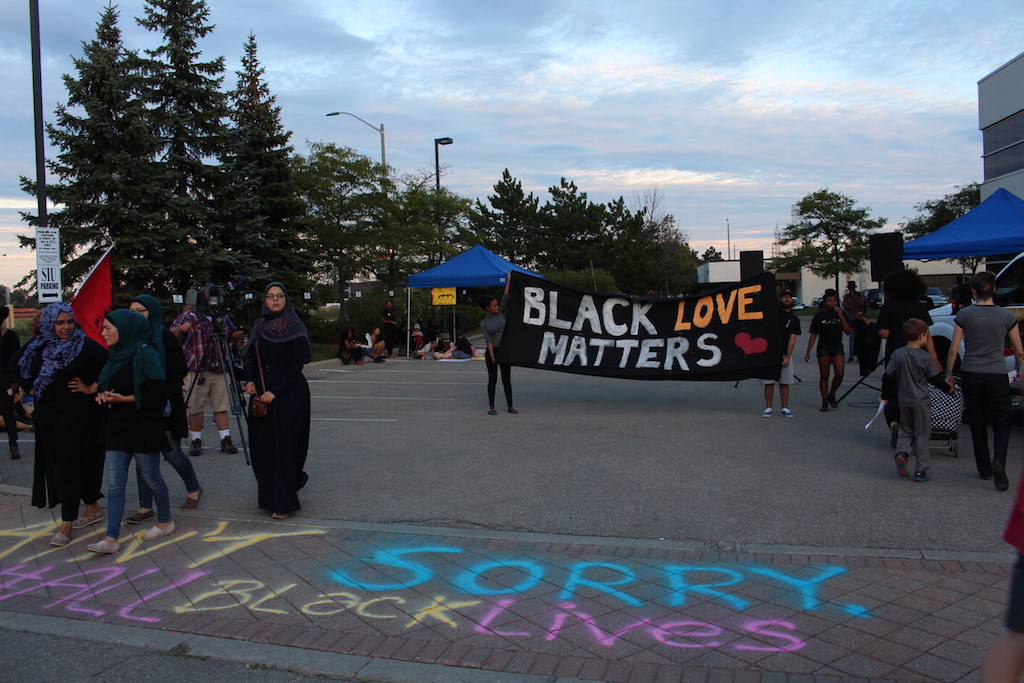Like this article? rabble is reader-supported journalism. Chip in to keep stories like these coming.
The criminal justice and police oversight systems in Canada aren’t malfunctioning. They were designed to disproportionately criminalize communities of colour. So Black Lives Matter Toronto is saying: shut it down.
On the one-month anniversary of police killing Abdirahman Abdi, a 37-year-old Somali-Canadian man, outside his Ottawa home, Black Lives Matter (BLM) chapters rallied in seven cities across Canada.
At the Special Investigations Unit (SIU) in Mississauga, Ont., BLM Toronto made clear to a throng of supporters and community members that reforms to the SIU, the body tasked with investigating police brutality, are not sufficient.
“They shoot us or kill us within minutes,” said Syrus Marcus Ware, an artist, educator and activist.
“They have had ample training, so don’t talk to me about training. Don’t talk to me about reform. They have had ample training about how to interact with disabled people.”
Abdi, who was known by his family (and the police officers involved in his death) to have mental health issues, was violently beaten without provocation and handcuffed before succumbing to his injuries. Police were responding to a disturbance at a nearby coffee shop.
“Abdirahman Abdi experienced a psychiatric disability,” Ware reminded the crowd.
“This is something that was communicated to the police before they approached him. The police behaved in ways that unfortunately we have come to expect. They behaved with fatal force, killing him with their bare hands.”
As in other recent instances of civilians dying at the hands of police, if the SIU investigates and decides not to recommend charges, the officers involved will not be named publicly.
Releasing the names of police perpetrators was one of BLM Toronto’s demands when they spent two weeks camped outside Toronto police headquarters protesting the death of Andrew Loku, a father of five who was killed in his Toronto apartment building in July of 2015.
A heavily redacted version of the SIU report on his death was released in late April.
As some members of BLM Toronto have noted, if not for witnesses recording the incident on Hilda Street in Ottawa with their phones, it’s unlikely the police officers’ identities would be disclosed in Abdi’s case.
“Over 90 per cent of the police officers who have sexually assaulted somebody or murdered somebody, there’s been no accountability. They just walk off scot-free,” Pascale Diverlus, a BLM Toronto co-founder, told rabble.
Abdi’s death highlights the importance of addressing both anti-Black racism and ableism at an institutional level, and in our own communities, says Ware, whose work tackles gender-, race- and ability-based oppression.
“Our society has so much stigma about disability and about the presentation of the ‘crazy’ or disabled body in public space. There is a fucking moral panic that leads everyday people to call 911. When they see us behaving just how we behave in public space.”
“This increases our encounters with the police, it increases police brutality, and far too often, the death of Black disabled people at the hands of police and law enforcement, and this is what we saw in Ottawa.”
BLM members have made a point of centring intersecting issues in their demonstrations, including at the Pride parade in Toronto this summer, where they made the case that honouring police with a float disregards the historically damaging experiences Black queer community members have had with law enforcement.
“We won’t separate our issues out anymore: we want a revolution,” said Ware.
The rally in Mississauga included performances from musicians, spoken word artists and youth poets, and speeches from Abdi Hagi Yusuf of the Toronto York Labour Council, Tracey Mann from the End Immigration Detention Network, and Rinaldo Walcott, the director of the Women and Gender Studies Institute at the University of Toronto.
Walcott conveyed the demand that communities are given transparent oversight over their police forces. “Nothing less will do,” he said. Without that critical accountability, community members will organize at the ballot next election.
“What we’re calling for is a different way of doing Black politics,” said Walcott.
“The time for begging is over — we will seize the lousy second-class citizenship that Black people have been offered in this place and we will demand better.”
Steph Wechsler is a freelance writer and master’s candidate at the Ryerson School of Journalism.
Photos by Steph Wechsler
Like this article? rabble is reader-supported journalism. Chip in to keep stories like these coming.





